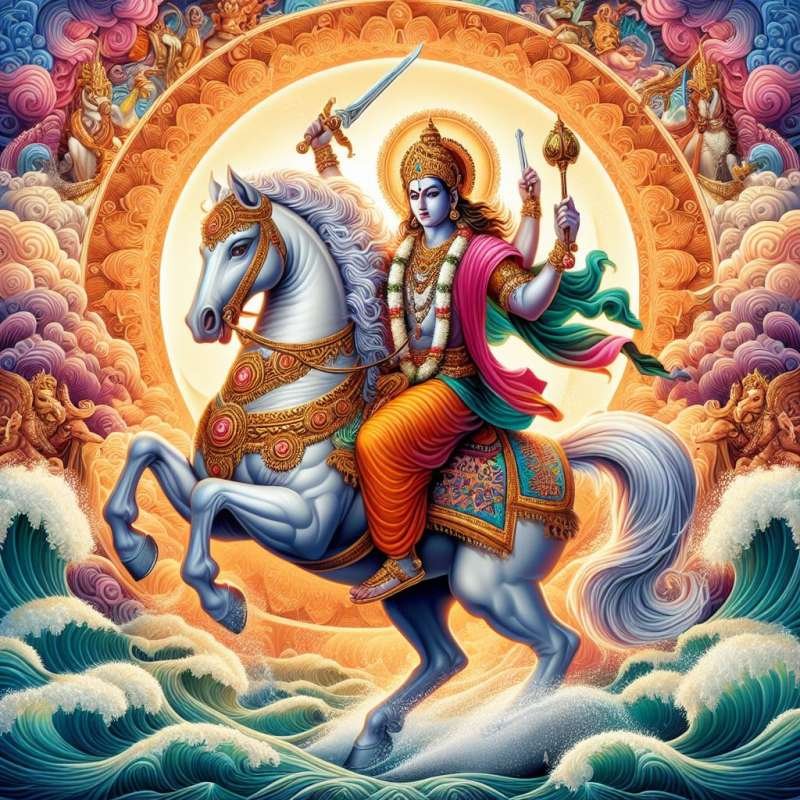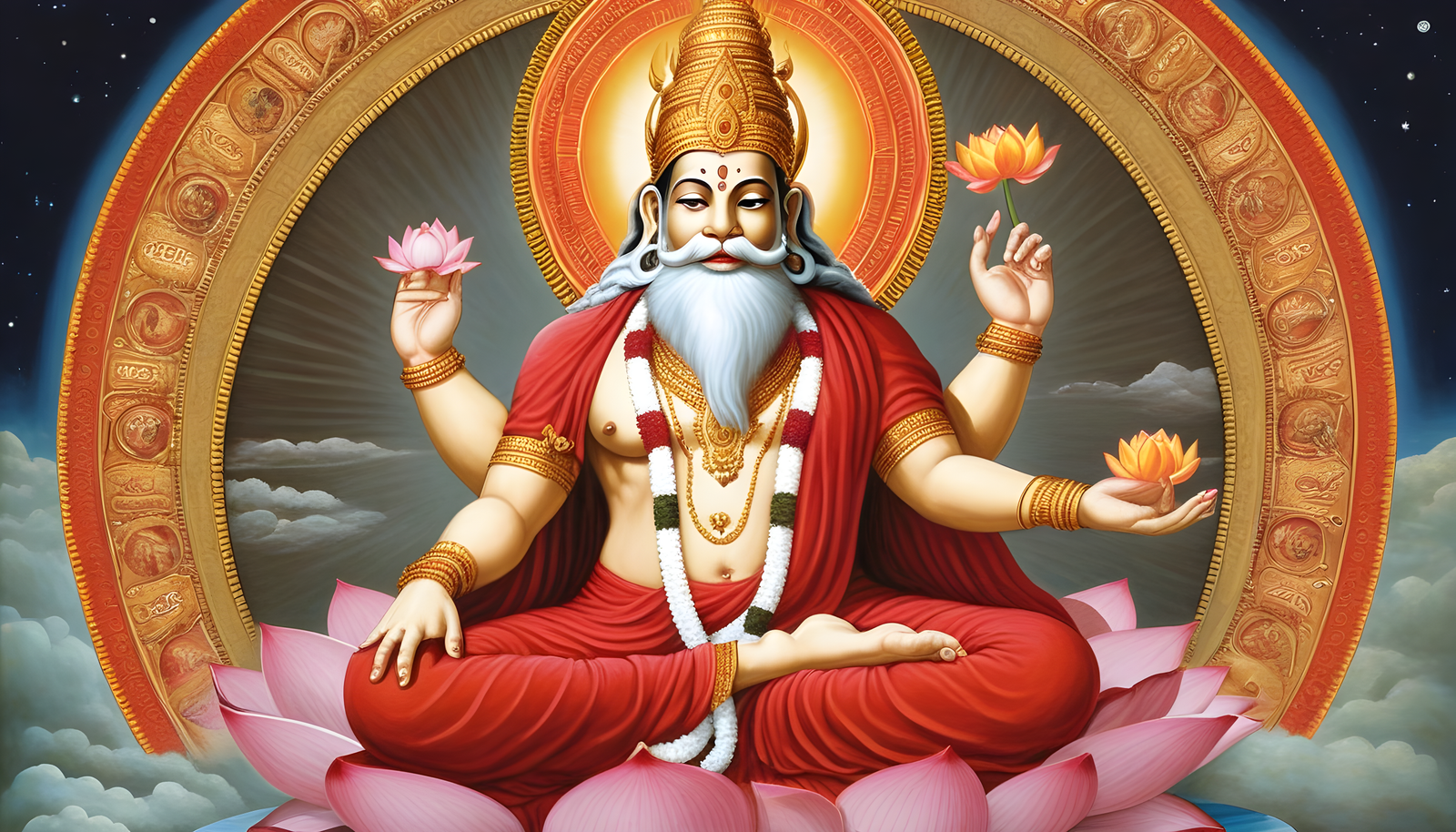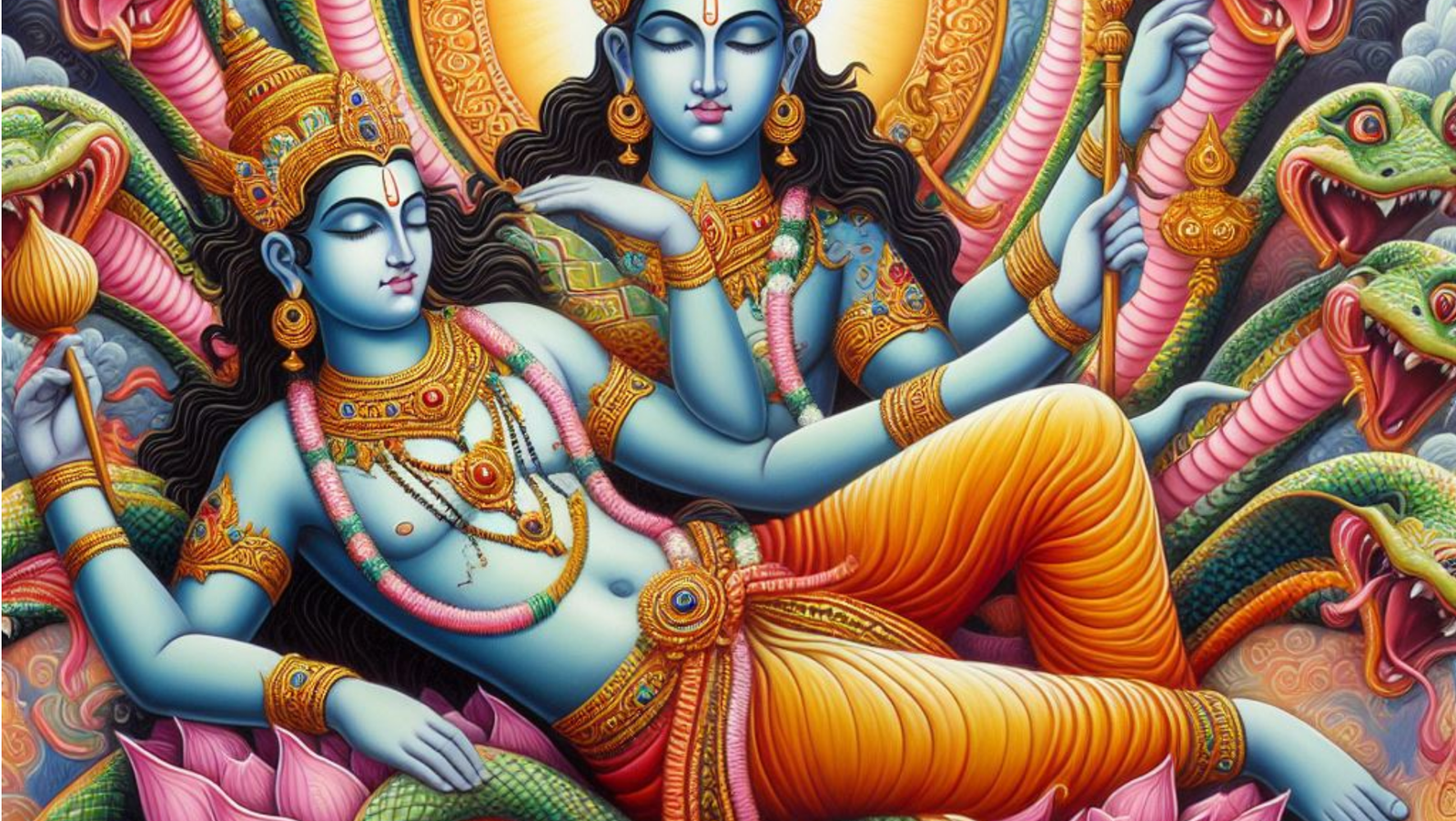Who Created Brahma?
In Hindu mythology, Brahma is considered one of the principal deities of the Hindu pantheon, responsible for the creation of the universe and all living beings. According to Hindu cosmology, Brahma emerges from the cosmic golden egg (Hiranyagarbha) at the beginning of each cycle of creation, known as the Kalpa.
The traditional belief is that Brahma, along with Vishnu (the preserver) and Shiva (the destroyer), is part of the Trimurti, representing the three fundamental aspects of existence—creation, preservation, and destruction. However, while Brahma is credited with the act of creation, his own origin is subject to various interpretations within Hindu mythology.
One common mythological narrative describes Brahma as self-born or self-created (Svayambhu), emerging from the cosmic waters of the primordial ocean (Narayana) when creation is set into motion. In this version, Brahma is said to arise from a lotus flower that emerges from the navel of Vishnu, who lies on the cosmic serpent, Ananta Shesha. Brahma then proceeds to create the universe and all living beings.
Another interpretation posits that Brahma is born from the primordial being known as Brahman, the ultimate reality or cosmic consciousness that pervades the universe. In this conception, Brahma emerges as a manifestation or aspect of Brahman, tasked with the role of creation within the cosmic order.
While Brahma is credited with the act of creation in Hindu mythology, his worship and significance have diminished over time in comparison to Vishnu and Shiva, who are more widely venerated by Hindus. As a result, there are relatively fewer temples dedicated to Brahma, and he is less commonly worshipped as a primary deity in contemporary Hinduism. Nonetheless, Brahma remains an essential figure in Hindu cosmology and mythology, symbolizing the creative force that sustains the universe.
You may also like …
Are You The Proud Hindu?
The Trimurti
Create an account to join us and start taking part in conversations.
SIGNIN



